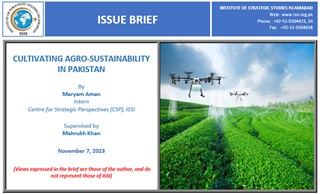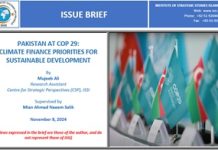Climate change is our leading global issue; therefore, it has become imperative to reduce or eliminate any practices that can exacerbate environmental damage. It can eventually increase the rate of erosion and turn fertile land turns into arid, and ultimately useless, soil.
Agriculture is the backbone of Pakistan’s economy. It makes up for 24% of the Gross Domestic Product (GDP) and half the employed labour of the country is working in this sector. Most importantly, it is the largest source of foreign exchange income for the developing country.[1]Pakistan faces a rapidly growing population and is under immense pressure to increase its food production to keep up with domestic demand, as well as export demand to keep its economy afloat. To ensure a stable and sustainable future, it is imperative to overhaul agricultural methods and embrace crop diversification. Sustainable farming, as a solution, centres on soil enhancing health, and maintaining its natural state to prevent erosion and desertification. It also includes using water resources efficiently and minimizing pollution through the use of fertilizers and pesticides. Furthermore, sustainable farming also includes preserving the biodiversity of plants and insects that are essential in maintaining a healthy ecosystem.[2]
















